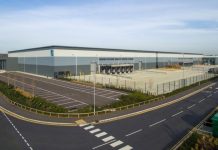Dorset’s voice of business has urged bold action from the next government to catapult the country towards a prosperous future by 2020.
Dorset Chamber of Commerce and Industry (DCCI) – which has 700 members representing 37,000 employees – has thrown its weight behind the new blueprint, entitled A Business Plan for Britain: Expectations of the next UK Government.
The British Chambers of Commerce (BCC) has drawn up the wide-ranging business manifesto to achieve a “more confident, more enterprising and more skilled trading” nation.
It outlines decisive economic measures in seven core areas for the new government after the 2015 election to help the country fulfill its economic potential.
DCCI chief executive Ian Girling, who led a county delegation to the BCC conference at Westminster earlier this year, said: “This bold new manifesto is of vital importance, both nationally and in Dorset.
“It is crucial that any new government listens to the voice of business and prioritises the policies in this manifesto to make strong and long-term growth a reality.”
DCCI, the voice of business in Dorset, is the only county chamber accredited with the BCC and is able to exert influence on executive BCC policy.
The Business Plan’s seven core themes:
* Retaining the best talent and developing the next generation
* Growing global trade potential
* Strengthening infrastructure to reach a world-class standard
* Driving down business costs and taxes
* Supporting long-term business investment
* Delivering a new settlement for Britain in Europe
* Placing business at the heart of local growth
Key measures include a childcare contribution scheme to help parents stay in work, and simplifying the tax system – including a freeze on business rates until a 2017 revaluation of premises and complete reform by 2022.
Others are promoting access to finance and backing for small-to-medium enterprises and making economic opportunities in Europe work for businesses.
Also, removing barriers to trade, building international networks and investing in exports skills as well as building new aviation capacity at existing airports and strengthening regional airports, with any viable expansion plan allowed to proceed.
The manifesto also demands that business is placed at the heart of local growth with companies given a greater say in local decision making.
This includes a Business Ratepayers’ Vote on local economic strategy and a greater say on decision making to make councils more sensitive to business issues and costs.
Ian added: “Many of these policies would have a profound impact in Dorset as well as nationally, especially business rates reform, access to finance and investment in exports.
“The 2015 general election will be an important turning point and politicians must make the right decisions to create the best possible conditions to create a Britain built for growth and prosperity.”
The manifesto’s objectives include the fastest GDP growth in G7 over the life of the next Parliament and the highest level of business investment as a percentage of GDP in the G7 by 2020.
Others are the lowest rate of youth unemployment in Europe by 2020, doubling the value of exports to £1 trillion by 2020 and elimination of the budget deficit and return to surplus by 2018/19.




















